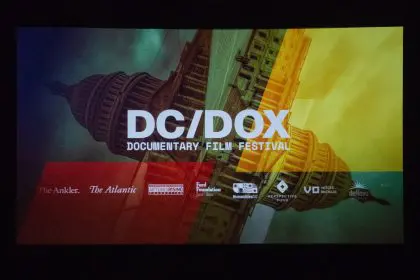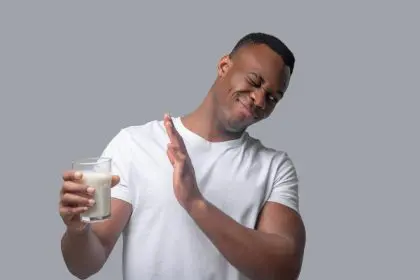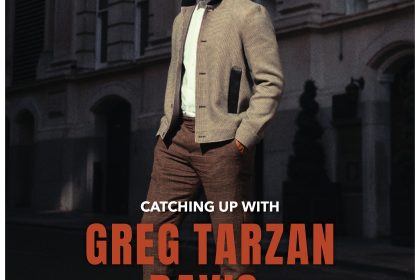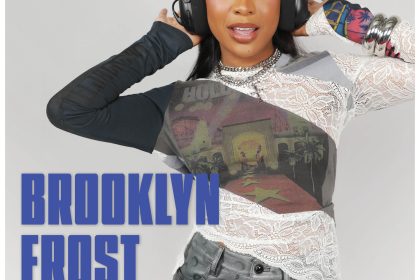|
|||
|
Story by Jacinta Howard Rapper-producer-dancer-actor will.i.am has always been in his own world. In 1998, when most Left Coast rappers were still taking their last spins around the block in their ‘64s and sipping the last of their gin and juice, will.i.am was dressing like a hippie and break-dancing in his videos. The day is Nov. 4 and Sen. Barack Obama is clearly on his way to becoming the 44th president of the United States. Will.i.am is live on CNN, talking about his role in Obama’s campaign. Actually, he’s not really in the studio, he sent his “hologram” to do the talking. As Anderson Cooper converses with him, trying his best to look hip, will.i.am’s starpower seems to burn brighter by the second.
Since he first popped up on the scene in 1992 as Atban Klann with the album, Grass Roots, he’s been slowly but surely revealing his apparently endless talents. His penchant for making socially charged music videos aside (see: “Yes We Can” and “It’s a New Day,” which debuted on “Oprah”), will.i.am showed up to DreamWorks Madagascar: Escape 2 Africa with not only his voice in tow, but his skills as a musician, too. In addition to completing his first full-length motion picture soundtrack album collaboration, penning four brand-new original songs (and the instrumental score), will.i.am is also doing double-duty as the voice of a new character, Moto Moto. “This is my first animated film, but it’s not the first time I scored [a movie],” he clarifies. “Just working on this project was dope. I learned so much.” Although he’s expanded well beyond hip-hop and producing for pop artists like his discovery, Fergie, his roots actually that landed him the gig with DreamWorks. Justin Timberlake referred him to Jeffery Katzenberg, CEO of DreamWorks Animation, after hearing all of the silly voices that will.i.am could do. From there, he was cast as the loveable hippo, Moto Moto. But it’s the music end of things that will.i.am enjoys the most. He loves being challenged creatively, and scoring this film is exactly what he needed. “[I learned] patience,” will.i.a.m says. “If you’re doing a [hip-hop, pop or R&B] song it takes probably like a week, and an album might take like six months. [Making films] is like a lot of work. You have to do the voice, all the sound effects, from the sketch to the pre-animation to the full 3-D animation, to the music, to the changing of the music, to the music fitting the scene and stopping at the right time [and] the song transitioning into [a] traditional score.”
True to his maverick nature, will.i.am was ready to try something different. Hip-hop aside, he’s about pushing boundaries creatively, and if that means he has to go to Hollywood to do it, then so be it. Trust that will.i.am is serious about his eyes being firmly set on Hollywood. Over the years, he’s made it abundantly clear that he has the talent, knowledge and humility to do practically anything he wants to do. “We sold 24-million records,” he states matter-of-factly. “I know what that money means. A lot of cats sell a lot of records and they didn’t make the beat, they just wrote the rap, so their publishing is sliced. I know what 24-million records means, from writing the song, producing the song, performing the song, and touring the song and licensing the song. [Movies are] a whole other kind of money! Mickey Mouse! I don’t know what Mickey Mouse money is. Madagascar is like crazy loot. They own every single property, they created it.” And really, that’s what will.i.am’s career has been about so far, maintaining control. He never lost himself in the hype of the industry. He never lost his sound when he defied hip-hop’s typical sound to make radio-friendly upbeat songs with the Black Eyed Peas. Now that he’s delving into film, and becoming the new Bono for the urban community, don’t expect his hard-won perspective to change.
“Dream and surround yourself with friends to help you execute those dreams,” he says, breaking down the way that he views life. “Do things that benefit your community in a positive way and surround yourself with friends that will help you achieve those things.” He says that for many young black males, peer pressure is their breaking point — and that has to stop. For him, personal responsibility is the key. “Any friend that is going to deter you or cause your dreams to not be a success, get rid of them … seriously. That’s poison. I don’t have a dad, never had one. I don’t know what he talks like, don’t know what he looks like. All I had was my mom and my uncles. So the family that you do have and the friends that you do have [are] important to how you end up. Dare to dream big. Don’t compete with the little dude, compete with the dude that has a lot. Train to live beyond what the person that you’ve been inspired by has achieved. If you like Will Smith, aspire to be bigger than Will Smith’s company, not Will Smith. You ain’t gonna pass Will Smith trying to be Will Smith. You pass Will Smith trying to pass who Will Smith works for.” On Nov. 6, will.i.am debuted his video, “It’s a New Day” on “Oprah.” A big feat for a guy who just five years prior was probably just another nameless rapper who didn’t even register on the media mogul’s radar. Oprah and the rest of her crowd of faithful followers were excited. This is the proper cap to a monumental event for the talented rapper-producer, and he’s relishing it. But he knows there’s work to be done. And will.i.am sees that as the root of the problem. At the end of the day he’s all about soaking up as much knowledge as possible and then, actively applying it. “When you don’t control something you’re subject to whoever it is that’s controlling it to hand you out what you deserve,” he continues, his eyes serious. “So for example if you have [artists] that are all working to expand something they don’t control, there’s only room for one person or a couple to benefit from it when in [actuality] the creators need to develop the infrastructure [and] the platform [for] the community to be the controlling entity. The urban community needs to not just be the providers, but the controllers.” |













